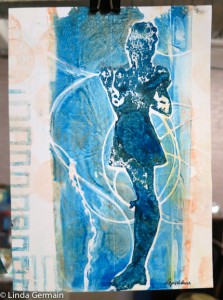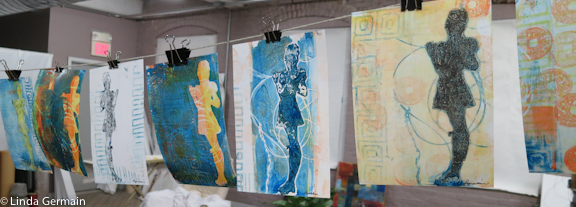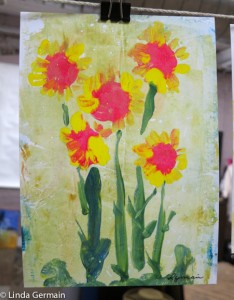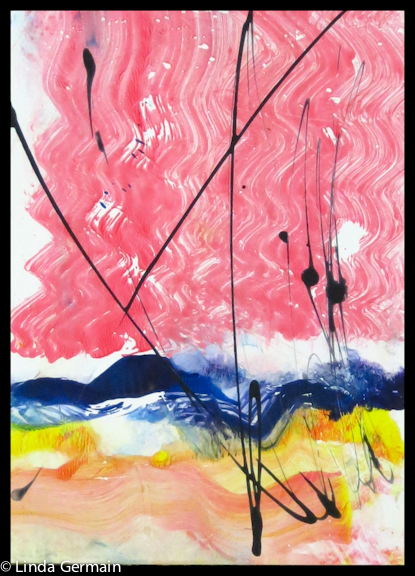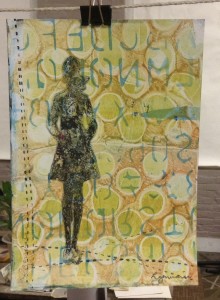TV can inspire composition and design choices for printmaking
Even if you don’t watch that much TV, you can take advantage of all the money and resources that the BIG guys spend to create powerful programing and messages. Ok maybe I am trying to justify all the time I spend in front of the television. Forgive me.
Make prints more compelling – TV
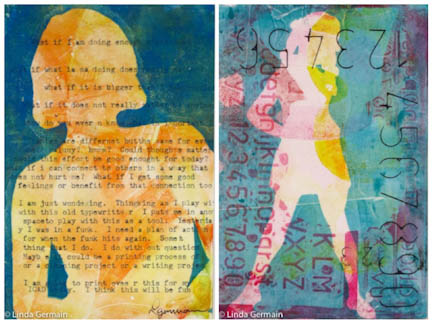
I learn a lot about:
- Compositions and design
- Color and impact
- Effective messaging
If you are creating art with the intent to communicate with your viewers, then maybe you too can benefit from some of the design choices used by big companies with whole marketing and design teams. (Of course, I am not saying copy them that would not be legal.)
Think of it as research right in your living room. You could even turn off the sound. Grab a sketchbook and notice what catches your attention. Consider:
- Where is the focus placed in the frame?
- Where do they want to you look?
- Is anything repeated?
- What does the negative space look like?
- How is the the image cropped or framed?
If you found this fun or useful then, please share one discovery in the comments section of this post. I am sure you will inspire others as well.
Take a printmaking class
Would you like to explore gelatin printing with the homemade gelatin and glycerin plate in Make Monotypes, the online printmaking class. Check the workshop schedule and sign up.
This is what one student expressed about Make Monotypes, printmaking class:
“This is the first online class that I have stuck with. Linda makes it so easy, enjoyable and productive.” from Emily A.
Additionally, you will receive a weekly email about printmaking, ideas, tips and courses.
Join us today and start having fun!
TV can inspire composition and design choices for printmaking Read More »
